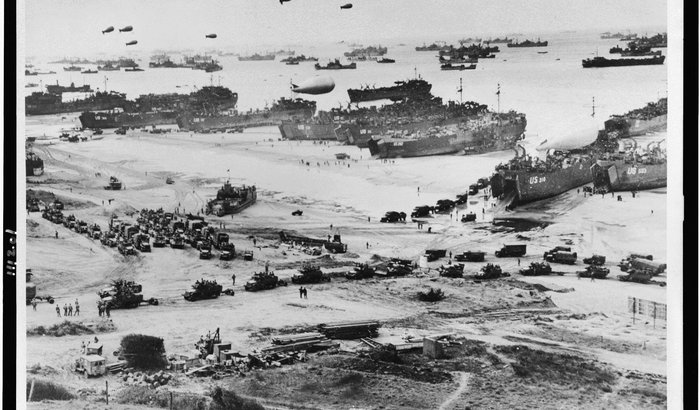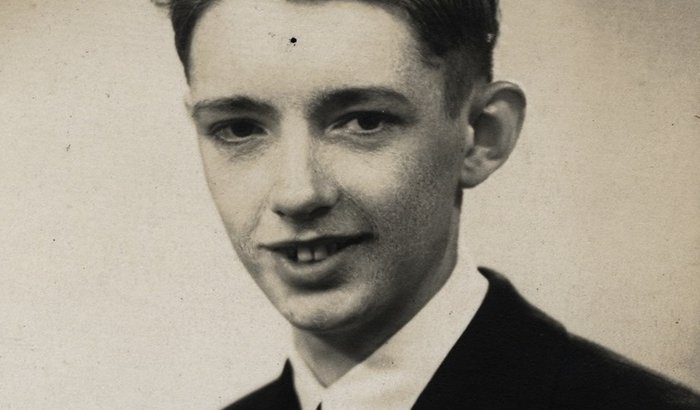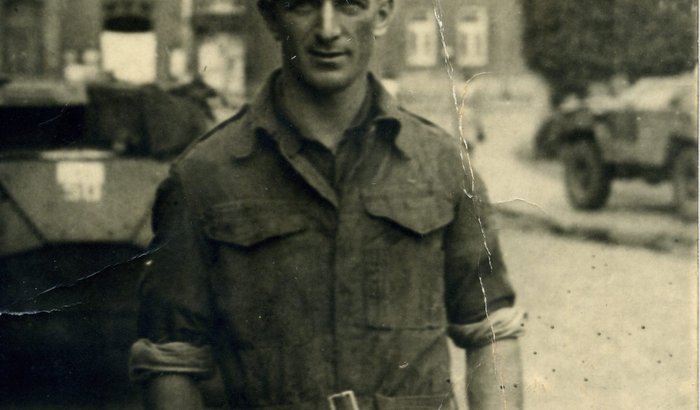


D Day. Image credit: Library of Congress.
Eric Cain. Image credit: Manx National Heritage & the Cain family.
Hector Duff. Image credit: Manx National Heritage & the Duff family.
Manx National Heritage, working with Google Arts and Culture, has put together a new interactive story chronicling the events which took place in Normandy 80 years ago this June. The new presentation examines the D-Day landings – the greatest amphibious military operation in history – from a Manx perspective.
Manx National Heritage Curator for Social History, Matthew Richardson commented:
“The D-Day landings were the first stage in freeing the countries of occupied Europe from the grip of Nazi domination. The Isle of Man played a huge part in these operations, in fact disproportionately so given its small population at that time. Manx ships played a vital part in carrying troops across the Channel – British, American and Canadian – and Manx soldiers fought bravely on the battlefields. Some were killed, and others who survived carried the scars, both mental and physical, for the rest of their lives.
Manx National Heritage is always interested in exploring ways in which new technologies can help us to unlock our collections and reach new audiences with the human stories behind them. This new interactive story on Google Arts and Culture is a great example of that”.
The presentation begins by focussing on the Isle of Man Steam Packet Company vessels which carried servicemen into battle, along with their Manx crews. One highlight is the voice of Douglas man Eric Cain who at the time was a 17-year-old galley boy aboard the Ben-My-Chree. The Ben carried American Rangers towards the German strongpoint at Pointe-du-Hoc, and Eric became friends with some of them.
Matthew continued:
“I was privileged to meet Eric some years ago, he was the last surviving crewman from the Ben-my-Chree. It is very rewarding to think that his words can now be heard describing these momentous events”.
The voice of much-respected veteran, the late Hector Duff can also he heard, describing his part in the landings. Another highlight is the Military Medal awarded to Andreas man Sergeant George Cleator for bravery in Normandy. The medal itself is on display as part of the Manx Museum’s Mann at War gallery, but through Google Earth technology users can now pay a virtual visit to the village of Lingèvres where he performed the deed which earned him his award. Cleator and his men were in the village a few days after D-Day when the Germans launched a counter-attack. Cleator crossed bullet-swept ground to bring his machine gun into action but as he did so an enemy tank rolled over him, breaking two ribs.
Matthew concluded:
“I am very aware of the debt that my generation owes to that of my grandparents, and the sacrifices that they made to ensure that the freedom and democracy that we enjoy today were safeguarded. It is important that the lessons we can learn from history are not overlooked by future generations, and I hope this story on the Google Arts and Culture website can help us to engage with new and younger audiences around the world”.
The Google Story can be found at https://artsandculture.google.com/partner/manx-national-heritage